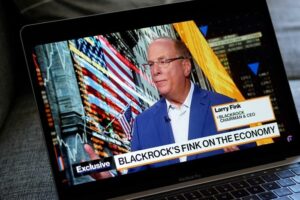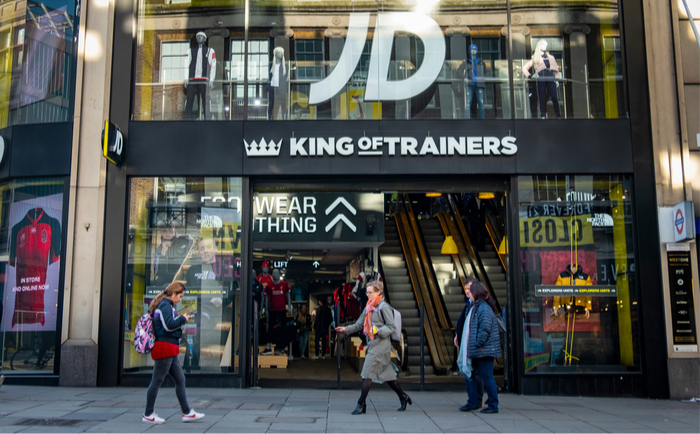Looking back on a year in governance, it’s hard to dismiss an observation that it’s been about sex, extremism and potentially—or at least a fear of—the end of the world.
These are topics that go to the heart of the human condition and throw a sun-sized arc light on the fact that people, including those either involved in or attempting to influence the world of governance, are flawed.
Governance is no longer a pseudo-genteel world of ageing men in pinstripes lingering over lunch and downing a self-congratulatory port. Fortunately, it’s moved on from there. Unfortunately, its movement has coincided with societal shifts that wouldn’t let governance go its merry way without attempting to turn it into a battleground.
Every which way a junior compliance officers turns, there is a hotly contested governance issue. Some debates are necessary and appropriate. Others oscillate with madness and the highly polarised nature of current politics.
Like many others aspects of modern life, governance must adapt to a world struggling with planet-defining issues: technology of apparently limitless power and the climate crisis. But it also has to contend its place in major social developments such as culture wars, the realignments of politics, diversity and equality.
Looking back over the year, there are some issues that stand out. Some may have lasting consequences, other may be transient. All, though, have at some point this year forced their way onto board agendas somewhere.
1. Let’s begin with a potential world killer: artificial intelligence. Now it’s not proven AI could end the world but it’s certainly worry enough for the board of OpenAI, providers of ChatGPT, to make it their role that AI “works for humanity”.
However, things began to look different when OpenAI’s “not for profit” board sacked founding CEO Sam Altman (pictured) after he was “not consistently candid” with them.

The sacking, as might have been predicted, kicked up a wave of bad press and spooked investors, among them Microsoft, who swiftly hired Altman to prove a point. A week later, the board had caved and Altman was back at his OpenAI desk.
However, the debacle raised the question: how can governance be structured for a technology that has world-ending potential?
Harvard prof Roberto Tallarita put the issue into perspective: he suspects it can’t be done by a board; governments will have to step in. “Even the most creative corporate governance innovations cannot be a long-term substitute for the public governance of catastrophic risks,” he writes.
“While good corporate governance can help in the transitional phase, the government should quickly recognise its inevitable role in AI safety and step up to the historic task.”
2. Any chair looking on at the ongoing farrago surrounding Elon Musk must drop to their knees each night to thank the governance gods that they are boardroom fixtures anywhere other than Tesla or Twitter (now X).
For Musk seems unable to make a public appearance without saying something to undermine the reputation of his own companies, either directly or indirectly.
Currently, the main damage appears to be to X. In previous years he became embroiled with watchdogs at the Securities and Exchange Commission over comments made on X (then Twitter) about Tesla. So much so, he was subject to SEC sanctions.
A polite term for Musk at this current juncture may be ‘maverick’; others, Board Agenda is sure, may be using stronger terms. This includes those who have used Musk as a case study in their academic investigations of how to manage “superstar” CEOs.
Currently, there are no subjects on which Musk will not comment. He has backed right-wing Republican presidential candidate Ron DeSantis, faced allegations of anti-semitism, taken an interest in immigration, told advertisers to “Go fuck yourself!” for pulling their ads. He’s also laid into proxy advisers. It seems he will not be constrained though, as one observer wryly noted, this may last only as long as he is successful.
One thing for sure is that Musk continues to challenge most of the norms of governance. Will he find some self-control in the coming year? As the political battleground intensifies in the run up to US presidential elections, we doubt it. If are any guardrails around Musk, they are about to be tested even more.
3. If ever a promise was made and then scuppered, it was the promise of audit reform in the UK.
Since 2018, and the collapse of construction giant Carillion, the UK has agonised over how best to reform auditors, audits, the audit markets and the role of directors in audit and financial reporting. Five years on and the reform job is only partially complete.
In October the government, with the support of the London Stock Exchange, moved to cancel a set of long-touted new regulations that would have seen companies report on their risk and resilience preparations, assurance policies, anti-fraud measures and distributable profits.

To say the move disappointed some would be putting it mildly. One commentator said it would “diminish” the UK’s reputation for corporate reporting and leave most of the reform burden on auditors rather than shared with company directors.
But there was more disappointment to come. That U-turn was quickly followed by a decision to omit from this year’s King’s Speech (and therefore the government’s legislative programme for 2024) any mention of an audit reform bill that would create the statutory underpinning for a new regulator with strengthened powers. It was another tranche of reforms on hold and unlikely to appear in advance of a general election.
But it was also a sign that governance is now part of the ‘regulation lite vs regulation heavy’ conflict that so often grips UK business and was so instrumental in the Brexit debate.
4. Internal controls: at more or less the same time, the Financial Reporting Council (FRC), under the leadership of new chief executive Richard Moriarty, announced it too would drop a slew of new measures from its proposed new corporate governance code. Gone were proposals to have boards report on their monitoring of narrative reporting and sustainability issues.
However, the FRC said it would stand by provisions to have board members report on the effectiveness of their internal controls. This took many by surprise. The FRC received a record number of responses (5,000+) to the code consultation and one thing many board sources had declared was that the internal controls measures were too onerous, in particular because they appeared to apply not just to financial but non-financial controls too. One audit committee member told Board Agenda they would rather have the risk and resilience reporting than internal controls.
Nevertheless, some commentators called the decision a “spark of brighter news” amidst the welter of reform cancellations and we now await the final form of the UK Corporate Governance Code expected in the new year.
5. While all of this may have left board members and audit practitioners scratching their heads, one thing seems certain: the London Stock Exchange (LSE) and its chief executive Julia Hoggett have gained a new level of influence.
Blunt comments from Hoggett were included in the government press statement ditching risk and resilience reporting. She said “ever-increasing corporate governance” had “impacted the effectiveness of listed companies”.

Hoggett is also a key figure in the LSE-run Capital Markets Industry Taskforce (CMIT), which found itself also quoted on the government release describing new governance measures as “incremental burdens on business”. Hoggett has made her views known on executive pay too through a blog suggesting chief execs need more pay so UK companies can compete internationally for talent. Amid an ongoing cost of living crisis, that earned Hoggett the comment that she was “tone deaf”.
But Hoggett may have reason to be worried. Since 2015 the LSE has fallen from 2,429 listed companies to around 1,900, with capital moving en masse to other markets.
Some have argued that the answer won’t be found in undermining standards. Tim Bush of PIRC, a governance consultancy, condemned what he views as “rush to the bottom” on regulatory standards, writing: “Junk standards hide the junk equity of junk companies.”
For the time being however, the LSE has the ear of government and the Department for Business appears to be listening.
6. Far away from the endless fascination of corporate reporting are the dangerous liaisons of chief executives and efforts by their boards to contain the reputational fall-out.

The latest, of course, was Bernard Looney, now former chief executive of energy giant BP, who found himself recently fired and losing £32m in benefits for “providing inaccurate and incomplete assurances” in July last year about relationships with work colleagues.
Looney is not the first CEO in recent times to lose his job over relationships at work. So prominent has the issue become that The Guardian ran a headline complaining, “Tainted Love: is it all over for the workplace romance?”
Perhaps the wider lesson though is that society and investors now expect more of corporate leaders. Inevitably, the behaviour of CEOs has become a reputational issue for boards. By definition, any liaison involving a CEO and employee will involve a relative power imbalance, even if the parties are consenting. And that raises a host of questions related to the #MeToo movement.
7. At the start of her time as prime minister, Theresa May championed the idea of workers on boards as a way of boosting equality.
In the UK Corporate Governance Code, it became a choice of three options: a worker director, a designated non-executive collecting workforce views, or some sort of staff council. As we now know, most companies went for the safe bet of having a non-executive act as go-between.
After that, the workers on boards debate faded like a set of ageing overalls. But, in November, buried deep in the much-respected Resolution Foundation’s report on how to fix the UK economy, was a call once more to open boardroom doors to workers.
“To increase the pressure on managers to invest for the long term from below as well as above, we propose the mandatory inclusion of worker representatives at the board level for all larger UK firms (both listed and unlisted) with more than 200 employees.”
At this point, it’s hard to say that this will dominate governance debate in the year to come. But it does show the idea still lingers in the background as part of a broad suite of measures aimed at modernising the UK corporate landscape. And modernising is what the UK needs.

8. At Davos in January, there was a stark warning: companies were about to witness a sharp increase in climate litigation. Sebastian Vos, a partner at international law firm Covington & Burling, told assembled guests that European legislation, in the form of the Corporate Sustainability Reporting Directive (CSRD), and the Corporate Sustainability Due Diligence Directive (CSDDD) would cause a spike in cases.
Though not using those particular laws, this year saw the board of Shell become subject to a claim over climate responsibility (it failed), as did BNP Paribas (as yet unresolved).
By July, a report from the Grantham Research Institute at the London School of Economics had told us that litigation cases worldwide for “climate washing” had more than doubled in two years.
But bear this in mind: the first reports using the CSRD are expected in 2025. The CSDDD has only just been agreed with first use also slated for the same year.
This new kind of reporting will be closely scrutinised and the campaigns grounps are waiting.
9. 2023 was quite the year for sustainability disclosures rules. In June, the International Sustainability Standards Board published final versions of IFRS S1 and S2, the first sustainability reporting standards under leadership from the body that gives the world International Financial Reporting Standards.
It’s a word salad, yes, but worth noting because the UK government is expected to green light IFRS S1 and S2 next year for mandatory use.
After that will likely follow mandatory assurance. Corporate finance departments and audit firms should be gearing up.
Add IFRS to CSRD and CSDDD, plus climate reporting rules expected to be finalised some time soon for US listed companies, and you have companies across major jurisdictions coming to terms with a big new world of sustainability disclosures. The corporate world’s role in tackling the climate crisis deepens every day.
10. Which brings us to the politicisation of ESG. In the US, the term has become so toxic that it is no longer a fixture of the keenly awaited annual CEO letter from Larry Fink, chief executive at fund manager BlackRock who has declared it will no longer be used.
The problem for propenents of ESG it that Republicans claim it forms part of the “woke mind disease” and it has, unfortunately, moved to centre stage in the culture wars.

So sensitive have US companies become to the political attacks associated with mere mention of ESG, there is evidence they engage in “green hushing” —a new phenomenon in which companies push ahead with sustainability projects but make little song and dance about it for fear of attracting the wrong kind of attention.
In one sense, some of the doubters are right: while ESG (environmental, social and governance) remains a useful conceptual yardstick, the measures and data used by index providers to bring it to life can be unreliable. After all, how can an energy company score well on a sustainability index while it continues to help pump carbon emissions into the atmosphere? As bizarre it this seems, it happens.
In the UK, prime minister Rishi Sunak imported some of this polarisation by going cold on sustainability policies. The ban on new diesel and petrol cars was moved from 2030 to 2035, while phasing out of gas boilers was moved from 2035 to 2040. There were others but as a whole they left many observers frustrated. One corporate secretary told Board Agenda they sent “confusing signals” to corporate leaders.
However, doubts about ESG were present among deep thinkers too. By August, Alex Edmans, a UK governance scholar, was writing in the Wall Street Journal that the acronym should be binned. “Infatuation” with the term, he wrote, had “gone too far”.
“Just as painting by numbers is useful for a child learning to paint but limiting thereafter, the current ESG-by-numbers approach has long outlived its purpose.
“Let’s scrap the politicised, simplistic and restrictive term of ESG and free companies to create long-term value.”
It’s too early to tell whether the Edmans plan will catch on. But complaints about ESG are growing. What’s important will be making a change without rubbishing everything the term stands for. It may be flawed, but it’s intentions are good.
The weight of expectation in 2024
So how to sum up? Governance has become contested space, tied to the vagaries of a political discourse that is only likely to be become more intense and more polarised as we approach general elections in the US and UK. The noise will not help a rational debate about governance.
Nevertheless, sustainability is becoming ever more deeply ingrained in the governance process. New mandatory disclosure requirements will mean profits are still good, but they’ll be poor value if the reporting shows they come at the cost of massive externalities that harm the environment, biodiversity, the plant and animal kingdoms and, of course, people.
The UK has its own particular problems. Our capital markets look to be in long term decline (exacerbated by Brexit) and in need of a boost.
But it looks very much like some have chosen reduced (or at least static) governance requirements as a part of the answer. No change in the short term may do little harm. But no governance reform in the long term won’t work. The world is changing, public expectations are adjusting, and regulatory thought is evolving in the face of new problems. Governance must change too or become irrelevant.
And there’s the crux: in a world which values transparency, accountability and long term survival, well-honed corporate governance is crucial.
Let’s hope those values prevail in 2024.





